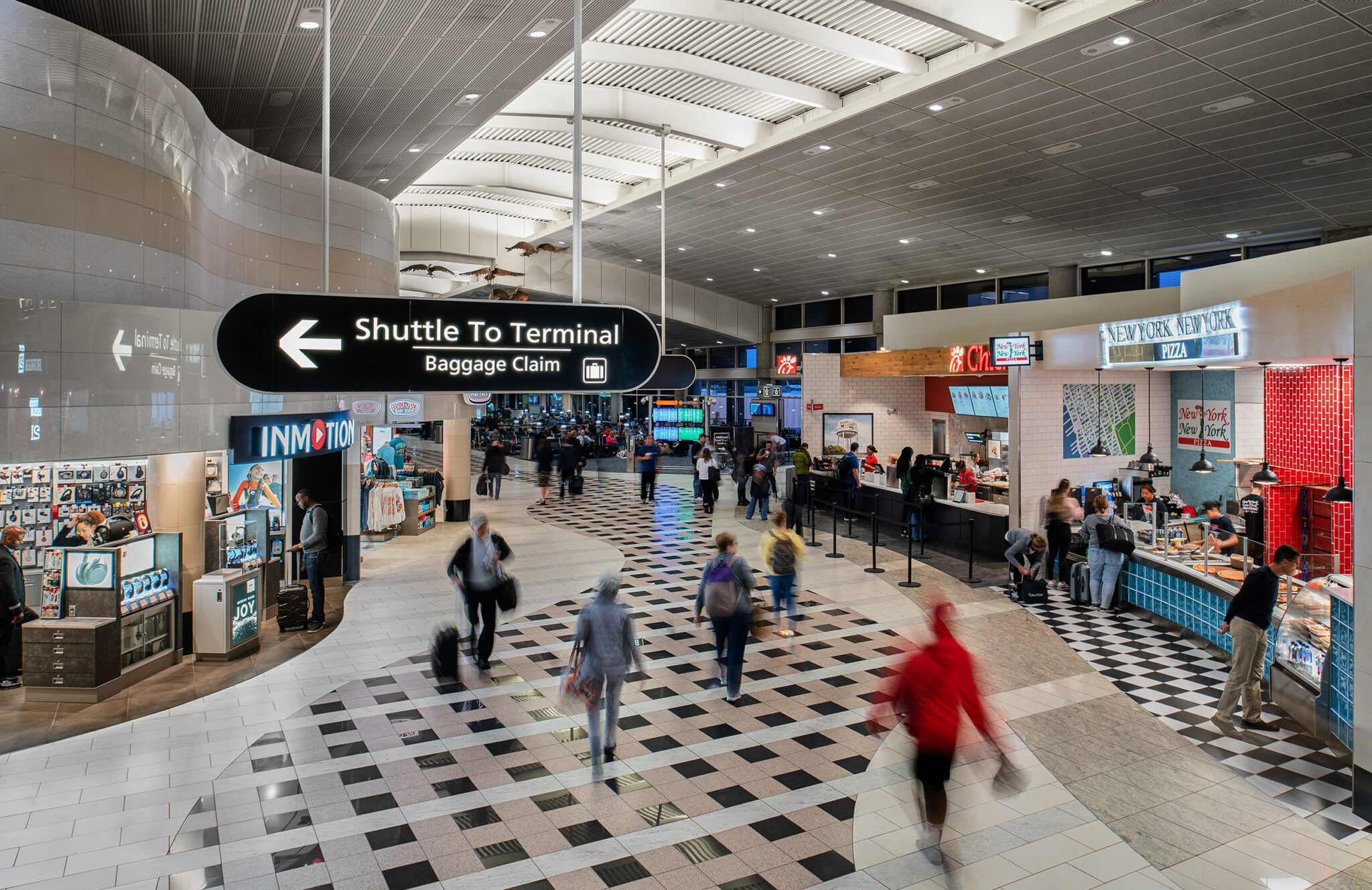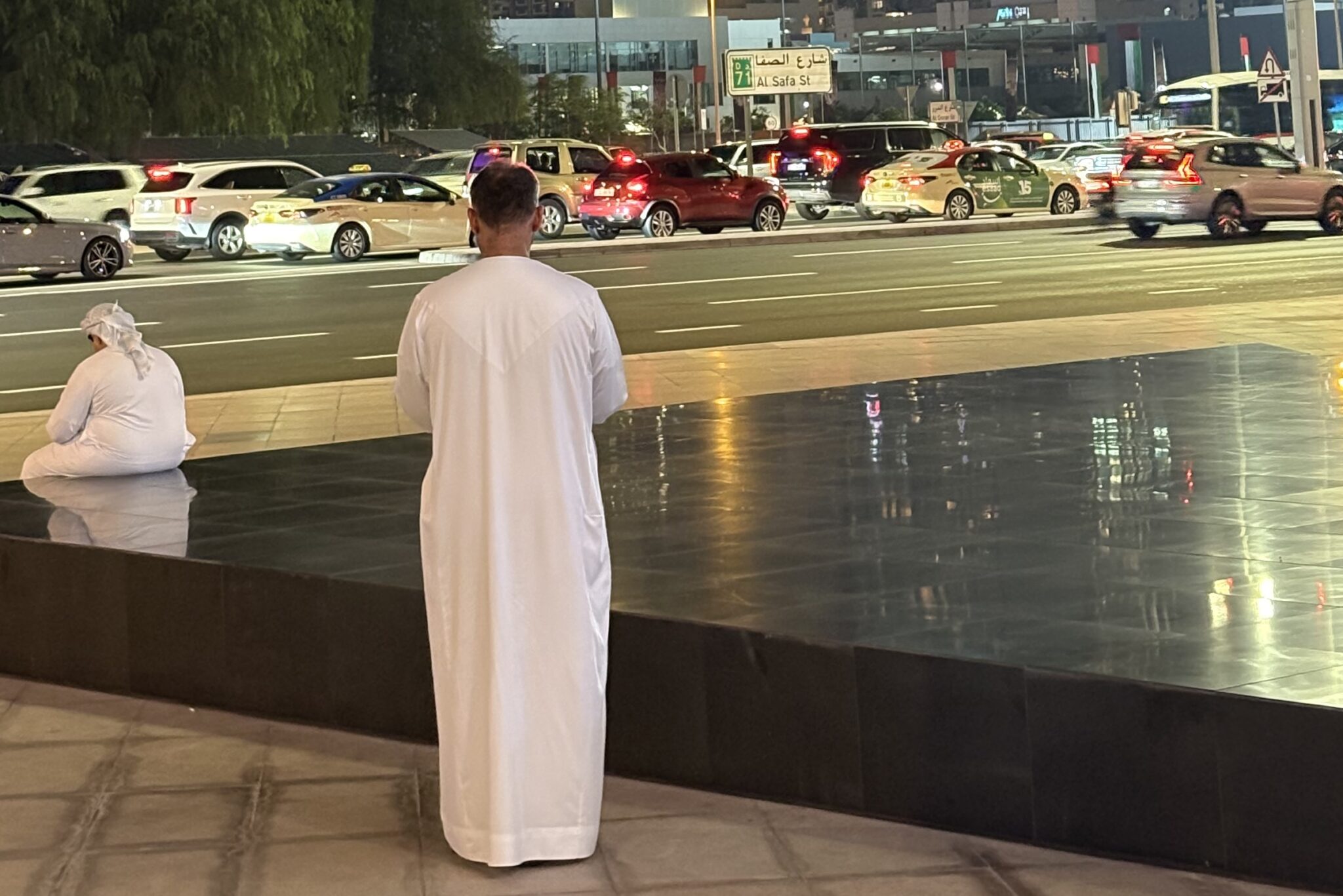Tourism Bureaus Need to Stop Thinking Like Tourism Bureaus

Skift Take
The primary role of tourism bureaus is to choreograph the overall destination experience, because with all of the talk about Google, Uber, and TripAdvisor, they aren't going to develop a Restaurant Month promotional campaign during a destination’s slow season.
That’s according to Bill Geist, chief instigator at DMOproz in Madison, Wisconsin, who works with destination marketing organizations (DMOs) to develop new business strategy. Previously, Geist was president of the Greater Madison Convention & Visitors Bureau.
Most DMOs are involved in some type of product and destination development, such as creating restaurant months, acquiring new airline routes, supporting meetings and convention infrastructure expansion, and developing large special events. The original DMO mandate revolved around driving economic development and quality of life for the entire destination, including both the local business community and local residents.
But because the majority of DMOs receive the bulk of their funding from hotel room tax, somewhere along the way the hotels in many destinations hijacked the majority of attention from DMOs. So much so, the success of many bureaus up until the 21st century was measured in terms of room nights, or “heads in beds.”
There is a concerted revolution against that yardstick throughout the global DMO industry. That’s the reason behind the shift in the tourism bureau designation over the last two decades from CVB (Convention & Visitors Bureau) to DMO. The CVB acronym connotes that bureaus are active solely within the field of tourism promotion. The DMO designation opens that up to include things like appealing to outside corporate investment, which may or may not impact a destination's visitor economy.
“We’ve got to stop acting like CVBs because CVBs equal travel and tourism,” said Geist during a presentation at the Destination Marketing Association International (DMAI) annual convention this month in Austin. “Travel and tourism and CVBs means heads in beds. That is a segment of the economy that is limiting, allowing us to be trivialized.... Instead, destination marketing is crucial in our global pursuit of investment, of capital, human resources and quality of life.”
The point here is that if the value proposition for DMOs is measured only by driving room nights, that narrows a bureau’s case for securing funding sources beyond room tax revenue.
Furthermore, while DMOs have always been involved in destination and product development, both the general public and much of the tourism industry itself aren’t always aware of that, or to what degree. There needs to be more public exposure highlighting the holistic value of DMOs, which means DMOs need to promote themselves just like they promote their destinations.
We spoke with Geist at length to dive into that and other shifts in the DMO industry.
Skift: Why is the standard funding model for DMOs—where hotel tax collections are disbursed by governments to the DMO—not more stable and secure?
Bill Geist: Municipalities and local governments are under such pressure. The really sophisticated ones understand that you don't mess with room tax and hospitality taxes. You invest them where you're going to get the greatest return, but that is such a difficult thing for politicians to stick to in this day and age. I think that for those bureaus in communities that get it, I think that funding is probably going to be pretty solid. But there are an awful lot of political leaders that don't believe in subsidizing destinations.
They see the opportunity to redeploy those revenues into non-economic development types of activities. Even if that wasn't happening, I think that it behooves DMOs to investigate and pursue other revenue sources. I do believe that the private sector holds a lot of opportunity for us that we have not maximized over the years. I think part of the issue has been that we adopted a chamber of commerce-ish membership model, so that we would look competitive to an owner of a company trying to make a decision who to join in a local community. Unfortunately what that's done, it has undervalued what it is we're bringing to the table.
Skift: What is an example of a DMO doing a good job developing new revenues with the private sector?
Geist: I think Salt Lake City is a fascinating example of the fact that the private sector invests a lot of money into that organization through a number of different revenue models and streams. Primarily because Scott [Beck, CEO of Visit Salt Lake] there, created a better mousetrap. They have the most robust marketing platform for businesses to jump onto and benefit from, far more robust than some of the traditional local marketing opportunities that have always been out there.
Skift: So, DMOs should leverage their readership online to develop more customized co-marketing campaigns?
Geist: Right. It's just building a better mousetrap, and I think that DMOs are going to need to understand that we are in the business of telling stories, and we're good at it. We're going to have more eyeballs, we're going to have more attention than some of the traditional advertising vehicles that have been out there, and thus we need to price it appropriately. I think that for a lot of businesses, investing thousands of dollars in their DMO for enhanced visibility makes sense, so there's an amazing opportunity that we've left just sitting on the ground. I think that private sector cooperative advertising is going to be a much bigger part of what we do in the future.
Skift: Is that why so many DMOs are shifting from a membership model to a partnership model?
Geist: The impetus for a lot of bureaus, at least in my mind, is that the old membership model worked back in the '80s when all of the businesses in town that cared about visitors joined the bureau because they wanted to be in the visitors guide. Now, what if your trendiest restaurant, or your biggest retailer isn't too stoked to be a member? How do they tell their story? At some DMOs, if they weren’t a member, the DMO couldn’t talk about them. That's a problem. Say a restaurant gets written up in the Baltimore Sun, for example, and people say, "That sounds really cool." Then they go to the bureau website and it's not listed, and the person says, "How much can we trust this site if they don't know about this new Korean Mexican fusion restaurant?"
I think it's this pay-to-play model that has caused people to reassess, because it limits DMOs in our ability to tell the complete story. Having said that, I think what smart bureaus are doing is going back to those members and saying, "Look, we're no longer going to have a membership program, we're going to list everybody, but you continue to fund us at this level or higher, and you'll get enhanced listings. You will get extra social media love. You will get first in search on our mobile platform, etc."
The fear is that bureaus think they might face losing revenue, but in fact, we're seeing in some cases they're actually making more money with a partnership model than they were with the dues model. I think the impetus, again, was that we were realizing the pay-to-play model just doesn't work anymore. It certainly worked for the members that were paying and playing, but it doesn't work for us to be able to tell the complete story.
Skift: So that benefits the consumer. They see the entire scope of the destination.
Geist: Right. Scott wasn't the first to do partnership out of membership, but his story was just fascinating. He had four bars as members, and what was that doing? It was reinforcing a stereotype that nobody drinks in Salt Lake, when in fact they've got a fabulous club scene. He said, "This doesn't work anymore. I've got 20 steakhouses, I've got three that are members. Membership is making Salt Lake look third class."
It was not easy. He really had to work on his membership committee. The four bars liked it that way because they wanted to be the only four bars on the mobile site, but inadvertently it was hurting the image of the community. So if I'm trying to think of where I'm going for the weekend to tear it down, Salt wasn't on my list, if I spent any time of the website because it looked boring.
Skift: Why aren't more DMOs actively engaged in product and destination development, where they’re actually working with private developers to create more visitor experiences? Or where they’re creating tourism master plans that incorporate all of the community stakeholders in a unified long range vision?
Geist: I think for some of them probably, it's an old school view of the world. They’re saying, “I’ve got my hands full marketing and selling. My job is heads in beds, and damn it, that's what I'm going to do.” I don't think there's a lot of that, but there's some. I think probably more prevalent is a board of directors that is focused on the here and now and not on the future. A board that doesn't want to get its hands dirty, doesn't want to work that hard, because this is difficult stuff.
Whereas, instead of just being the sales/marketing arm to a region, many DMOs are getting out there in front and trying to create a long range vision plan for the destination, like they've done in Sarasota, and which they're currently doing in the Roanoke/Virginia Blue Ridge area. That's big picture stuff. In those communities, the community really gets engaged, and we find that the bureau's respect and stock really rises. If somebody is not focused on being engaged in destination management, product development, experience management, I question how long they're going to be relevant in this industry.
Skift: So that requires a certain political will on the part of the DMO?
Geist: Exactly. In Madison, Wisconsin, where I live and where I used to run the bureau, 25 years ago we went into a referendum campaign to change the minds of Madison voters and convince them to a build a Frank Lloyd Wright-designed convention center. I'm on the ground a few weeks when the mayor suggests it, and we look one way and we look the other, and nobody's standing up for this thing. The chamber didn't, economic development didn't, downtown was wishy-washy on it. Everybody had been burned pretty badly in the last referendum, and we just said, "Oh well, if not us, this thing's not going to get done." So we actually jumped into destination development 25 years ago, not realizing that it was going to be the next big thing.
It isn't all peaches and roses here in Madison. None of us have the money to develop our destinations, but if we're good storytellers, both locally and to visitors, maybe we can convince the powers in our communities to get behind a cool project.
Skift: Did that convention center get built 25 years ago?
Geist: It did. We started out in 1990 and the first poll was 70/30 opposed, and two years later we won with 50.8% of the vote. It completely transformed downtown. You can go downtown and ask anybody on the street walking by, "Did you vote for it?" Eight out of ten will say yes, but in reality it was down to the last precinct. We weren't sure what was going to happen, but it's been a huge boon to our city.
Skift: Among the media and public, there are those who are questioning the relevancy of DMOs in today’s digital travel and tourism landscape. So is this convention center example one way to validate the relevancy of a DMO, by talking more about destination and product development?
Geist: Absolutely. Nobody questioned the relevancy of the bureau after we helped get the convention center built. People may question our room night production totals, but they don't question the relevancy of the organization.
I think the same is true in Rockford, Illinois. Rockford had a really challenging 20 or 30 years. Money Magazine ranked it the worst place to live two years in a row, which is just unfair. Their downtown has really seen some very horrible years, and yet the bureau, through it all, has been this amazing cheerleader. Now the city has succeeded in getting a hotel to come downtown. They also just changed state law to allow for a $28 million sports complex downtown on the river. The mood in Rockford is up and excited, and anybody in that town who matters looks at the bureau and says, "Big thumbs up." There's no relevancy question in Rockford, Illinois.
Same with the DMO in Minot, North Dakota. They were the ones that helped the community get out of the flood. The city wasn't nimble enough to do anything online and the chamber was paralyzed, but within 48 hours, the DMO had a help line website up so people could connect the dots, could contribute money, could find lost relatives, could find lost dogs, stuff like that. So I think that the relevancy issue can't be about heads in beds, it has to be about something bigger.
Skift: How can DMOs be more proactive to quantify their value to their communities than they have in the past, especially when a lot of people question the annual economic impact numbers?
Geist: Yeah, I actually think it's getting harder to prove with numbers, and that's going to be a real challenge for us going forward. Partnering more aggressively with economic development is something that’s quantifiable. I think that that's going to be the story that ultimately ends the relevancy debate. We counted room nights for so long, and that just failed miserably in my mind. It's harder and harder to count people with more and more of them avoiding room blocks. I mean, it's almost impossible to count. It also has nothing to do with our work and our efforts in leisure marketing, and it doesn't talk about the number of people that we have converted through our marketing to become residents. Ultimately I think that the destination marketing organization becomes the marketing arm for everything for a region or a community. It's not related just to visitors.
The new Longwoods study provides research about that in six states in the Midwest and the South. They asked people, "Do you think that the state of Wisconsin is a great place to start a business?" Then they showed them one of the tourism ad campaigns, and asked them again. In every single case, after seeing one of the tourism ads, the impression of it as a great place to live, great place to retire, great place to invest, great place to start my career—every marker always goes up. In fact, the folks at Michigan Economic Development Corporation admit that when those Pure Michigan ads run, they spike with requests for investment information from corporations.
Skift: Expanding a little more on one of the things you said, are you seeing more DMOs become involved with economic development agencies to attract people to move to the destination after they visited?
Geist: There's some research that CEO For Cities unveiled last year that indicates that Millennials, who have been the most mobile generation in history, are actually starting to put down roots when they hit 32 and 33. So they're really no different from their parents, they're just five years late. What that says to me is, if I haven't gotten that Millennial—that bright, creative, entrepreneurial Millennial—to visit my town when they're in their 20s, I'm not on the list for consideration when they hit 32. If I'm not on the list, I've lost them.
As Will Seccombe [president/CEO of Visit Florida] says, "No one ever moves to a destination without visiting it first." So I think that that's a message that we need to start pounding a little harder. I think a lot of community leaders understand that they want to attract the best and the brightest, and tempt the young professionals to visit before they put down roots. DMOs are the best possible avenue for that, and if we can communicate those results well, I think that corporate America will understand us better than they understand us now, because right now they just think we're about heads in beds.
Skift: Some DMOs are getting better at measuring and communicating their impact, and coming out with more studies and more collateral materials. Do you think that most DMOs can be better at that?
Geist: I don't think we've done necessarily the best job. I think we're doing a better job today than we used to, but I still don't think that we've been able to create a story that works. We keep relying on numbers, and saying that it's a hundreds of millions of dollars industry, but nobody really believes those numbers. Or we say we support thousands of jobs, and then people say, “Sure, but they’re all housekeeping.” I think that just reciting the numbers hasn't been enough.
There was a great campaign developed by Graham Spencer years ago to help Illinois tourism fight back a draconian funding cut from a former Governor, which we're seeing happen again. They came up with the iconic "Visitors mean jobs" campaign that featured people who you wouldn't expect, like a florist, a limo driver, a baker, saying, "I'm in tourism, because I support the businesses that are in tourism." I think it's got to be human interest, I think it's got to be quality of life. I think it just can't be the numbers. We're still working on that, but we haven't gotten there yet.
Skift: How do you get there?
Geist: I think a lot of it is watching each other’s messaging, like what Illinois' DMOs are doing right now with a campaign to oppose another cut in tourism funding. Graham Spencer is back with a series of images that say things such as, “Cutting Illinois Tourism funding is like taking away Harry Caray’s glasses." I think that's a great step forward. It's a different way of saying it, and if we learn from our partners around the world, we’ll get there.




